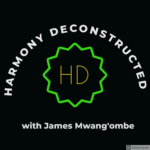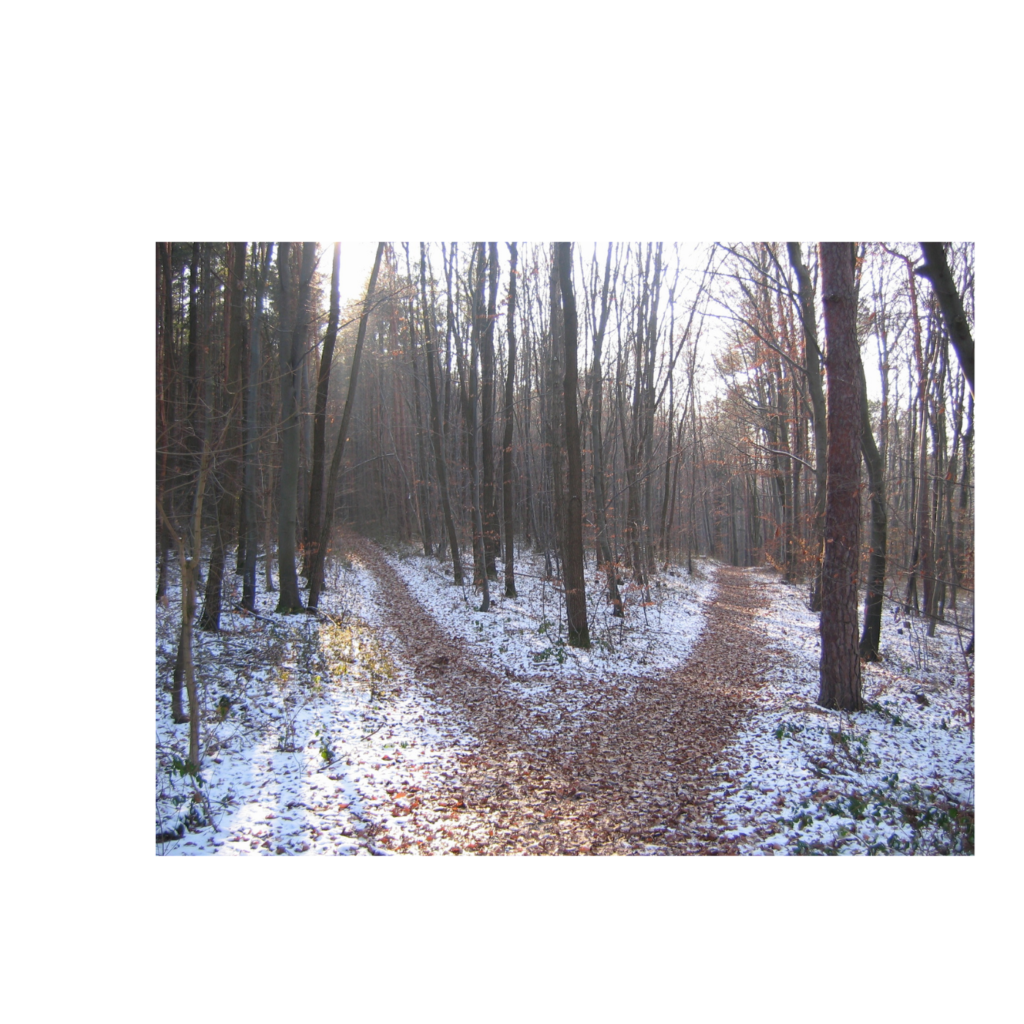
“True discernment means not only distinguishing the right from the wrong; it means distinguishing the primary from the secondary, the essential from the indifferent, and the permanent from the transient. And, yes, it means distinguishing between the good and the better, and even between the better and the best.” Sinclair B. Ferguson
Discernment is important for proper decision making and especially when we get to crossroads. You need to make a choice at that point. Do you go right, do you go left or do you stand and wait a while at the same spot before taking another step? This decision depends on the prevailing circumstances, the resources at your disposal and the goals you are aspiring to achieve. There is a famous poem by Robert Frost that a mentor of mine had shared with me some years back. It paints this picture of making a decision in a cross road so well:
Two roads diverged in a yellow wood,
And sorry I could not travel both
And be one traveler, long I stood
And looked down one as far as I could
To where it bent in the undergrowth;
Then took the other, as just as fair,
And having perhaps the better claim,
Because it was grassy and wanted wear;
Though as for that the passing there
Had worn them really about the same,
And both that morning equally lay
In leaves no step had trodden black.
Oh, I kept the first for another day!
Yet knowing how way leads on to way,
I doubted if I should ever come back.
I shall be telling this with a sigh
Somewhere ages and ages hence:
Two roads diverged in a wood, and I—
I took the one less traveled by,
And that has made all the difference.
Discernment is also crucial when making decisions about the priorities in our lives. It could be the priorities for the day, for the week, for the month, for the year and for your entire life. What are the most important things for you to accomplish? This is a decision that is as personal as it can be. If we prioritize the less important things, in the long run, the outcome of our lives will be quite different from what it could have been. There is this story told of a professor who practically demonstrated decision making based on priorities to his students. It goes as follows:
There once was a philosophy professor who was giving a lecture. In front of him, he had a big glass jar, a pile of rocks, a bag of small pebbles, a tub of sand and a bottle of water.
He started off by filling up the jar with the big rocks and when they reached the rim of the jar he held it up to the students and asked them if the jar was full. They all agreed, there was no more room to put the rocks in, it was full.
“Is it full?” he asked.
He then picked up the bag of small pebbles and poured these in the jar. He shook the jar so that the pebbles filled the space around the big rocks. “Is the jar full now?” he asked. The group of students all looked at each other and agreed that the jar was now completely full.
“Is it really full?” he asked.
The professor then picked up the tub of sand. He poured the sand in between the pebbles and the rocks and once again he held up the jar to his class and asked if it was full. Once again the students agreed that the jar was full.
“Are you sure it’s full?” he asked.
He finally picked up a bottle of water and tipped the water into the jar until it soaked up in all the remaining space in the sand. The students laughed.
The professor went on to explain that the jar of rocks, pebbles, sand and water represents everything that is in one’s life.
The jar represents your life.
The rocks represent the most important things that have real value – your relationship with God Most High, your health, your family, your spouse, friendships. Those things that if everything else (the pebbles and the sand) was lost and only they remained, your life would still have meaning.
The pebbles represent the things in your life that matter, but that you could live without. The pebbles are certainly things that give your life meaning (such as your job, house, hobbies and friendships), but they are not critical for you to have a meaningful life. These things often come and go, and are not permanent or essential to your overall well-being.
The sand (and water) represents everything else – the small stuff. Material possessions, chores and filler things such as watching television or browsing social media sites. These things don’t mean much to your life as a whole and are likely only done to get small tasks accomplished or even to fill time.
The metaphor here is that if you start with putting sand into the jar, you will not have room for rocks or pebbles. This holds true with the things you let into your life. If you spend all of your time on the small and insignificant things, you will run out of room for the things that are actually important.
Making choices requires discernment. Sometimes we can tell the good choice before we make it, other times we figure this out afterwards, in retrospect. We get to look back and realize with delight “Mmmh I made a good choice!” or in remorse we remark “oh my, that was such a bad choice!” Sometimes the choices are both good, just that one could be better than the other, and the tough decision is to choose which of them is better. For instance, if you are so tired but still have some work to finish, you have a choice to make. Do you take a break, rest or take a short nap, wake up refreshed and energized to complete the work in a short time; or do you power through, keep working and complete the work anyway, exhausted as you may be? Both are good choices, you get to complete the work, but one of them could be better. So in essence the quality of the choice we make becomes apparent once we complete the work. It becomes akin to what Jesus said “wisdom is proved right by its children.” Soren Kierkegaard said “Life can only be understood backwards; but it must be lived forwards.” So we have to make choices in the present time, but we must look back from time to time to understand the wisdom or lack thereof of our actions and correct them accordingly as we move forward.
For us to live an inspired harmonious life, we should utilize discernment in our decision making. It will aid us in making the appropriate decisions in the various circumstances we find ourselves in as we journey through life and while we strive to achieve the meaningful goals that we are pursuing.
So I ask what priorities are you focusing on right now and how are they impacting the decisions you are making?
Discernment is crucial when we have to ascertain the correct idea to go with or the correct action to take between two or more compelling ones. As a parting shot, consider what Charles Spurgeon said “discernment is not a matter of telling the difference between right and wrong; rather it is telling the difference between right and almost right.”
